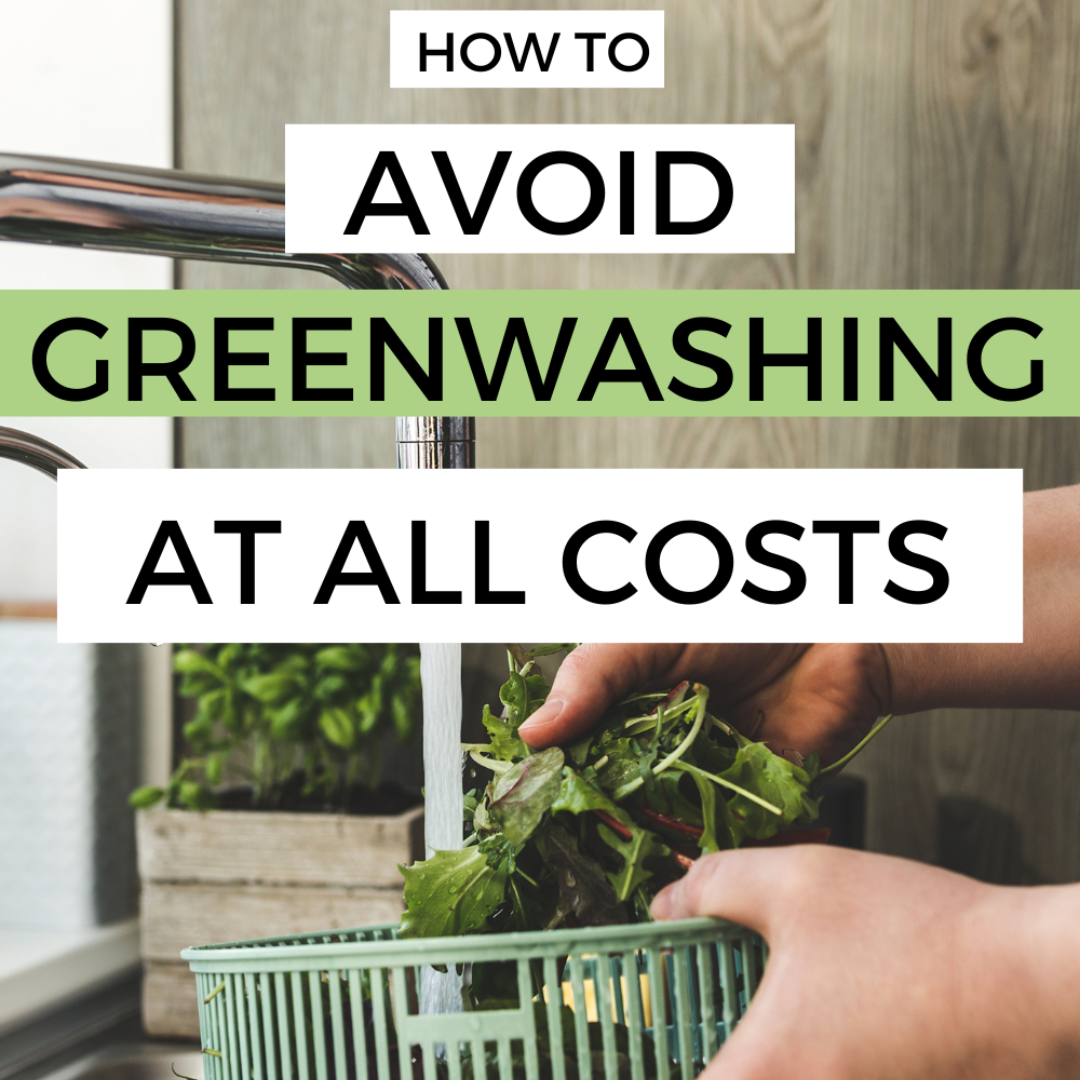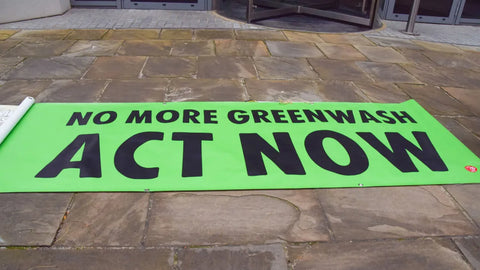
Greenwashing is the practice of making false or misleading claims about a product or service being environmentally friendly. This can be done through advertising, labeling, and other marketing materials. Greenwashing is often used to make a company or product appear more sustainable than it actually is.

Some common examples of greenwashing include using green logos or images without your business or product having any environmental benefit, making vague claims about being "eco-friendly" or "sustainable", and outright making false statements about your efforts. The last one seems like a longshot and something soulless brands put out in the world. Yet in my time working with small businesses, there have been a few that have made untrue statements in the effort to be hopeful and forward looking. All the best intentions, yet it’s still a no no.
Why is greenwashing troublesome and how to avoid it
Greenwashing can have a number of negative impacts on your business. For one, it can damage your brand's reputation and degrade trust with customers. Additionally, greenwashing can lead to government scrutiny and regulation. Finally, greenwashing can be costly as you lose out on returning customers, investors and having to re-do work promoting greenwashing practices.

Degrade customer trust and brand reputation
Greenwashing is a marketing strategy that corporations use to make products appear more environmentally friendly than they really are. It entails deceptive advertising, false claims, and the misrepresentation of a company's environmental performance. By utilizing this as a marketing tactic only erodes the trust you have worked so hard to establish with your customers. Customers can smell BS from a mile away and if you think greenwashing your audience is a quick win for your brand, you will learn the hard way.
You can get in trouble - for real

In Canada: Canada's Competition Bureau actively investigates environmental claims and enforces the rules against making representations that are false, misleading or not based on adequate and proper testing. A notable case has been documented where a company was required to pay a fine of $3 million for making false claims about their environmental efforts.
In the USA: The FTC has been more aggressive in pursuing deceptive claims. If a company is making claims to be "green" or "environmentally friendly" and they are not, they could face a fine. Just this past spring, the FTC imposed a hefty fine on Walmart for making false claims.
In the UK: This year, the UK government made aggressive changes to the Competition and Markets Authority (CMA) powers for regulating greenwashing. This will mean updated definitions of greenwashing and new fines.
You make it worse for everyone else trying to make a difference
4 out of 5 consumers feel misled by businesses making claims about their environmental efforts and using vague buzzwords. By making false claims on your site perpetuates this skepticism and makes growing a purpose driven business even more difficult. Don’t be that person who ruins it for everyone else, no one likes that person! But all kidding aside, if it’s not true or you’re unsure, pause and seek advice.
You can lose out on mega investment dollars

More and more investors are starting to put their money where their values are. You might be able to wow them with your pitch and untrue environmental efforts, but when it comes down to due diligence, your business is going to come up short. This will break trust with investors, damage relationships and in the end, the deal will likely fall through. Like you hear all the time, “Know your numbers”, you also need to deeply understand what your business does to positively contribute to the environment.
How to avoid greenwashing
There are a few key ways to avoid greenwashing in your marketing efforts.
- Know your numbers: Or in this case your environmental efforts, carbon emissions and reductions, recycled materials etc and make sure you don’t misrepresent them, especially in marketing and communications materials.
- Seek advice: It’s ok to be unsure before you launch a major marketing campaign. Seek advice from other purpose driven brand founders, marketers or hire a sustainability advisor to assist.
- Be honest where you need work: There will NEVER be a 100% sustainable brand, never. There will always be areas for improvement. Don’t shy away from these, be upfront and share these with your stakeholders.
- Dig into the details: Don’t make vague claims, lean in a little. Share some details, the who, what, how and share why it’s important to your business.
While greenwashing needs to be avoided, especially in markets with strict rules, this shouldn’t be a hurdle when sharing what your business is working on in this space. There will never be a 100% sustainable company, ever, so celebrate your progress and recognize where you can be better. Customers want you to be authentic, not perfect, so lean into your success and keep on improving!
Want to read more sustainability marketing advice and ways to grow your incredible, for purpose company? Subscribe.



